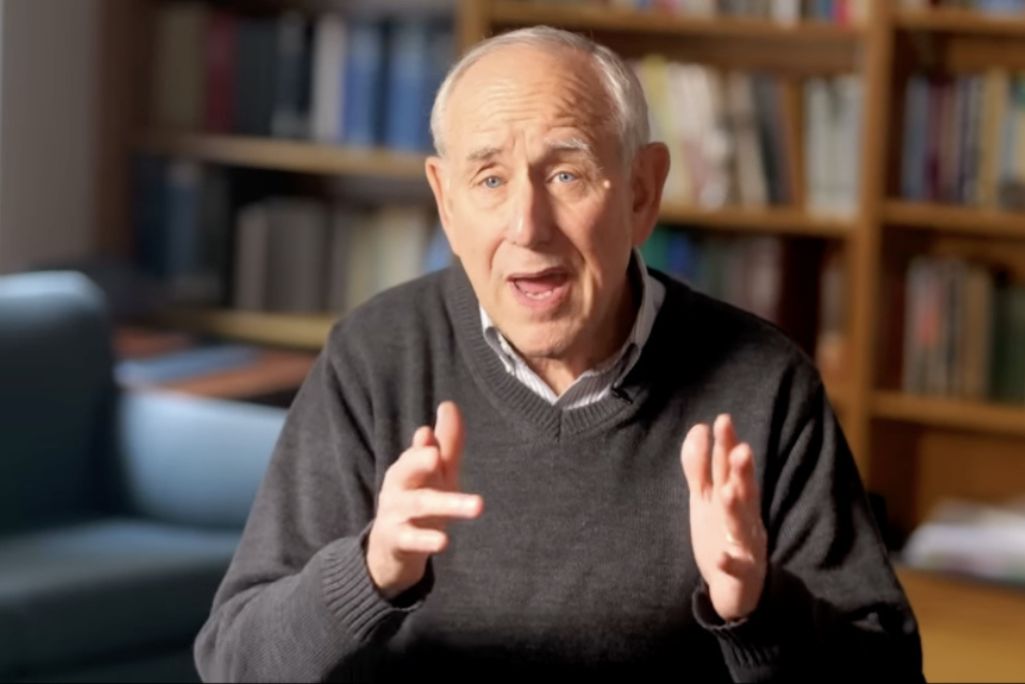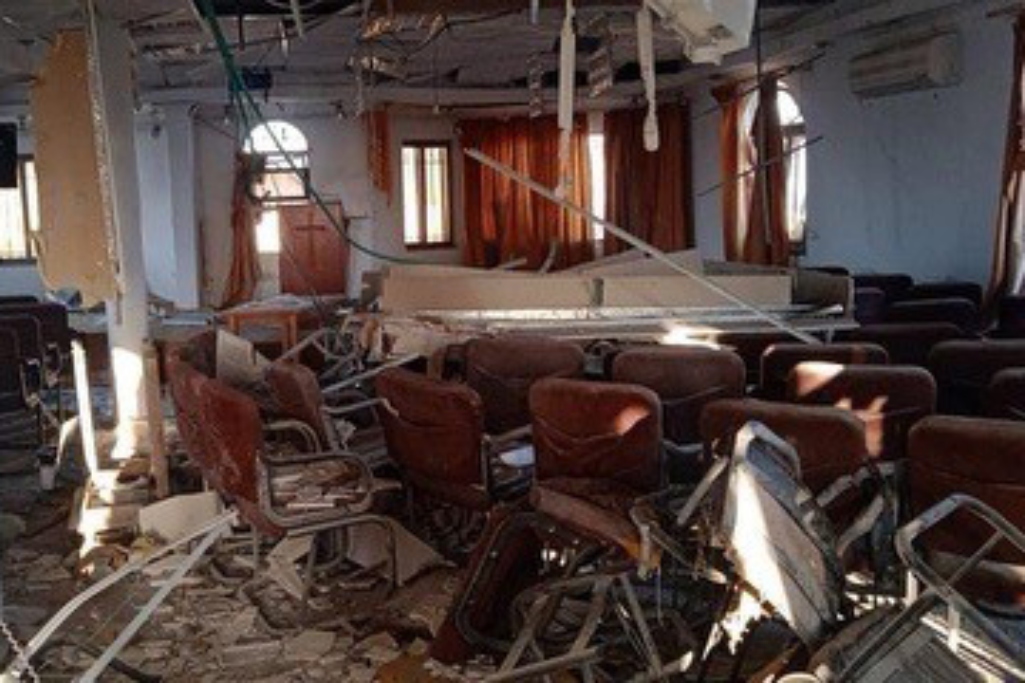
Mitch Glaser from Chosen People Ministries talks about the rise of antisemitism and the killing of a young couple in Washington, D.C., in May.
BOULDER, Colo. (BP) — As the Israel-Hamas war lingers and hunger spikes in Gaza, a man identified as 45-year-old Mohamed Soliman tossed two Molotov cocktails into a crowd of Jews in Boulder, Colo., who were marching for the release of hostages held by Hamas.
“Free Palestine,” shouted the attacker, watching as fire from the makeshift weapons burned the skin of at least 15 survivors before his eyes on June 1.
It had only been 11 days since a man police identified as 30-year-old Elias Rodriguez of Chicago fired into a crowd outside the Lillian & Albert Small Capital Jewish Museum in Washington, D.C., killing a young Jewish couple who were nearing matrimony, their surviving families say.
“Free, free Palestine,” police say Rodriguez screamed.
In April, in the wee hours of Passover as Pennsylvania Gov. Josh Shapiro and his family slept, a man who identified himself as Cody Balmer called 911 and confessed that he had just firebombed the governor’s mansion, noting Shapiro “will not take part in his plans for what he wants to do to the Palestinian people.”
Mitch Glaser, president of Chosen People Ministries, calls it “a vicious and virulent antisemitism” against the Jewish community, more so since the war began.
Both of the Washington victims, Israeli Embassy employees Yaron Lischinsky and Sarah Milgram, were Christians, Glaser told Baptist Press from Jerusalem as bomb sirens blared.
Ric Worshill, executive director of the Southern Baptist Messianic Fellowship, said fellow Jewish people are afraid.
“They’re afraid of reporting, especially now. The situation in schools is unbelievable. Out of all the attacks that are reported, it’s humongous,” he said. “It’s just a tremendous amount that Jewish students are afraid to say they’re Jewish. Because everybody’s filled with all this false information about what’s going on in Gaza.
“Israel is just defending themselves; they’re defending their people. I mean, when they attacked in 2023, Oct. 7, they literally just went in, raped, pillaged, and plundered and killed everybody that they could, including babies.”
The 9,354 antisemitic incidents the Anti-Defamation League (ADL) counted in 2024 in the U.S. are the highest in any year since it began tracking such data in 1946, the ADL said. That’s a 5% increase from the 8,873 in 2023 and an 893% increase over the past 10 years.
While many of the attacks in the U.S. are covered in rhetoric related to the war, Glaser believes the hatred is antisemitic, in and of itself.
“As the body of Christ, we need to continue to counter this horrific trend and oppose antisemitism,” Glaser said, “even when antisemitism is somewhat disguised in anti-Zionist and anti-Israel rhetoric.”
Hannah Massad, a Palestinian Christian who pastored the only Baptist church in Gaza before the war began, now feeds survivors of the war in Gaza through the Christian Mission to Gaza he founded.
Massad is trying to alleviate some of the suffering in Gaza, which the United Nations Office for the Coordination of Humanitarian Aid (OCHA) called the “hungriest place on earth” May 30, accusing Israel of blocking humanitarian aid supplies.
“The aid operation that we have ready to roll is being put in an operational straitjacket that makes it one of the most obstructed aid operations, not only in the world today, but in recent history,” OCHA spokesperson Jens Laerke said in a U.N. press release. He noted “congested, insecure” routes that Israel allows humanitarian aid groups to use, and “significant delays” in approvals for trucks to cross entry points.
“It is drip-feeding food into an area on the verge of catastrophic hunger,” Laerke said.
Massad’s ministry is able to operate with less scrutiny but has a far smaller reach. Christian Mission to Gaza served 3,880 meals in May, Massad estimated, a number that varies monthly but has kept alive the name of Gaza Baptist Church, whose building was all heavily damaged in the war. Services are no longer held onsite, but Massad holds prayer services online.
As antisemitism spikes in the U.S., peppered by failed peace negotiations an ocean away, Glaser, Worshill and Massad express a shared hope in Jesus.
For Massad, the hope of Jesus expressly includes the Palestinians.
Massad references the “universality of human dignity, that every life matters, regardless of ethnicity, religion or nationality.” He has an enduring “vision for justice and equality, that Palestinians, like Jewish people and all people, deserve the right to live freely and securely in their homeland.”
Massad clings to “the transformative power of encountering God’s love” and is resolute “that such an experience doesn’t lead to hatred or revenge, but rather to extending love, even to those the world call enemies.”
For Glaser and Worshill, the hope of Jesus not only encourages love for all mankind, including Palestinians, but also evangelism for Israel.
“Right now, more Jewish people are coming to faith in Jesus than ever before,” Worshill said, not based on statistics, but based on word of mouth. “Not because they’re running away from Judaism, they’re still Jewish. But because there’s so much pain and sorrow, they have nowhere to turn.”
Worshill encourages Southern Baptists to be aware of their neighbors’ pain and to respond appropriately with care.
“I’m actually seeing it in people that I deal with; Jewish people that I come in contact with,” he said. “They’ll tell me, ‘Don’t tell anybody, but I believe that Jesus is the Messiah.’”
Chosen People Ministries mobilizes people to combat antisemitism, uniquely through its newly formed Coalition Against Antisemitism, and to share Jesus with Jewish communities globally.
“There has never been a more appropriate time to tell Jewish people about the love of Jesus than today, as the Jewish community is under threat,” Glaser said. “It is imperative that Christians stand with the Jewish people and demonstrate the love of God in His Son to His chosen people.
“We must pray to God for Jewish people to persevere and be protected,” he said, “and find sensitive and living ways to present our Jewish friends, associates and family with the gospel message.”
(EDITOR’S NOTE — Diana Chandler is Baptist Press’ senior writer.)


